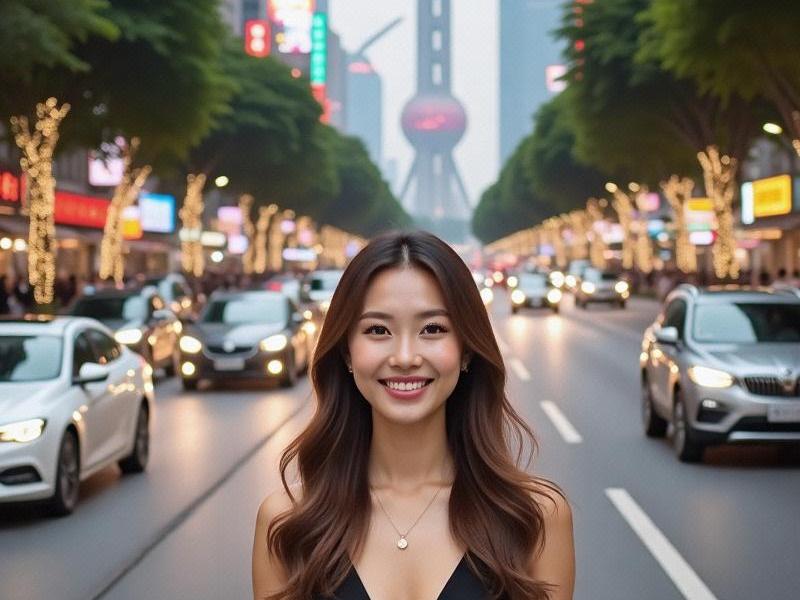Neon Renaissance: How Shanghai's Entertainment Clubs Are Redefining Urban Nightlife
⏱ 2025-07-07 13:32 🔖 上海龙凤419
📢0℃

The glow from Shanghai's Huangpu River reflects off the glass facades of the Bund's historic buildings, but the real illumination comes from the neon signs of the city's reinvented entertainment districts. From the jazz-age glamour of the 1920s to today's high-tech party palaces, Shanghai's nightlife scene has always mirrored the city's economic and social transformations. Now, as China's most cosmopolitan city enters its third decade of the 21st century, its entertainment venues are undergoing their most profound metamorphosis yet.
The New Golden Era
Shanghai's entertainment industry is experiencing what analysts call its "Third Golden Age":
1. 1920s-1930s: The Jazz Age with ballrooms like Paramount
2. 1990s-2000s: The KTV boom following economic reforms
3. 2020s-present: The "Quality Entertainment" movement
Today's premium venues like Muse 2.0 and Linx 3.0 bear little resemblance to their predecessors. These multi-story complexes combine:
- High-end KTV lounges with AI-assisted song selection
- Rooftop cocktail bars featuring Shanghai-inspired mixology
- Private dining rooms serving fusion cuisine
- Augmented reality dance floors
上海龙凤419油压论坛 "Modern guests want experiences, not just services," explains Vincent Li, general manager of the newly opened Nebula Club in Jing'an District. "We're creating Instagrammable moments at every turn."
The Regulatory Rebalance
Shanghai's entertainment industry operates under increasingly strict but nuanced regulations:
- Mandatory closing times extended to 4 AM in designated zones
- Enhanced security protocols including facial recognition
- Stricter alcohol serving guidelines
- "Green Venue" certifications for environmentally conscious clubs
The city's Nightlife Association reports that while 23% of traditional KTVs closed since 2022, premium venues grew by 17%. "The market is polarizing," notes association chairwoman Emily Wang. "Either go upscale or go niche."
Business Meets Pleasure
Shanghai's corporate entertainment culture drives much of the innovation. The new generation of "club-restaurant hybrids" like Cloud 9 in Lujiazui cater specifically to business clients with:
上海品茶网 - Soundproof meeting pods
- Translation-enabled ordering systems
- Digital receipt generation for expense reporting
- VIP loyalty programs tied to corporate accounts
Cultural Fusion
Contemporary venues increasingly incorporate Shanghainese cultural elements:
- Jazz bars featuring erhu (Chinese violin) performances
- Cocktails infused with traditional Chinese medicine ingredients
- Interior designs blending Art Deco with Ming Dynasty aesthetics
The Challenge of Authenticity
Some critics argue the new upscale venues risk losing Shanghai's distinctive character. In response, several clubs have introduced:
爱上海 - "Old Shanghai Nights" with 1930s-style entertainment
- Collaborations with local artists and designers
- Menu items reviving forgotten Shanghainese snacks
The Road Ahead
As Shanghai positions itself as a global entertainment capital, the industry faces both opportunities and challenges:
- The impending 2026 Night Economy Development Plan
- Growing competition from virtual entertainment
- Rising consumer expectations for personalized experiences
- Sustainability requirements
"The future belongs to venues that can balance spectacle with substance," predicts nightlife consultant Mark Johnson. "Shanghai's clubs aren't just places to spend money—they're becoming cultural destinations in their own right." From the jazz-age ballrooms of yesterday to the AI-enhanced clubs of tomorrow, Shanghai's nightlife continues to evolve while maintaining its unique position at the crossroads of East and West.
The New Shanghai Woman: Redefining Success in China's Global CityThe Shanghai Woman Phenomenon: How China's Most Cosmopolitan Females Are Reshaping National NormsShanghai 2040: The Making of a Future-Ready MegacityShanghai's Green Transformation: Paving the Way for a Sustainable Future的标记格式
6. 专业视角:需体现新闻专家的深度观察和文化解读
7. 时代背景:需考虑2025年当下特征,融合传统与现代元素
8. 历史轮次参考:前两篇分别从"多重身份"和"科技融合"角度切入,本篇可考虑文化传承维度
以下是为您全新创作的上海女性主题深度报道:The Shanghainese Feminine Paradox: Tradition Meets Futurism in China's Cosmopolitan CapitalShanghai After Dark: How Entertainment Clubs Are Driving the City's Nighttime Economy"Beyond the Bund: The Emergence of Greater Shanghai as Asia's Most Dynamic Metropolitan Region"【百年焕新】上海城市更新启示录:从外滩万国建筑到"一江一河"城市客厅Shanghai's Expanding Sphere: How the Megacity Reshapes the Yangtze Delta Ecosystem

